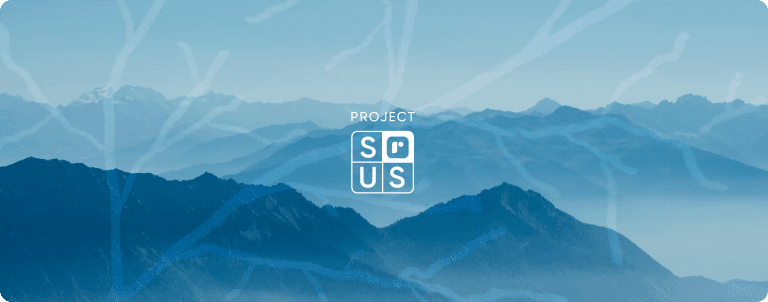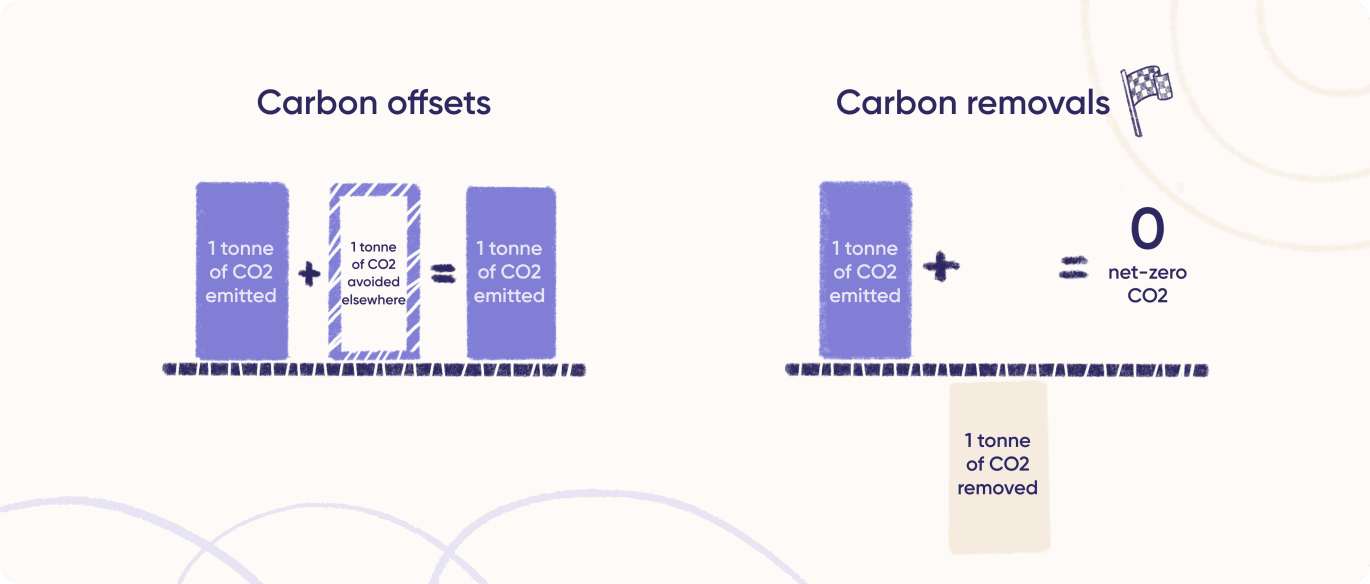CFO Corner / Categories:  Operations
Operations Strategy
Strategy
2023-02-02 | 8 min read
Net-zero gas emissions by 2025? Yes, we can

When I was about 6 or 7, my family took a two-hour-long car trip to the south of Paris so we could visit my grandmother for the summer. I remember that after we arrived, my father had to clean our windshield because it was full of hundreds of tiny little bugs that got caught during the drive there. I also remember the smell of fresh grass, the colour of the trees and the sound of bees flying around.
Fast forward to 2018, when I took my family on that same trip. This time, there were no bugs on our windshield, no fresh grass smell, no buzzing bees and not even that many trees. It may sound like a cliché, but I remember thinking that something was not right. I realised that something had to change, and as a human being living on this planet, I had a responsibility towards that change.
The fact is, I’ve always been conscious of the impact our actions have on the planet. Growing up in the 80s, in a time when the environment wasn’t something people really worried about, I was fortunate to have environmentally conscious parents who passed on most of those values. So, growing up and even in my adult life, I’ve always been close to nature. But loving nature wasn’t enough, I realised. I needed to start acting towards making a positive impact in preserving the landscape I loved so much.
So I started changing some things in my lifestyle. I became a vegetarian, stopped using plastic whenever possible, changed to a fully electric car, started paying an extra fee for plane tickets to compensate for my CO2 emissions on travelling and so on. These, I believe, were some of the things I had a responsibility to do as a citizen. But as time went by I realised that, as a company, Rydoo had a role to play as well.
And so our sustainability plan took its first steps. The most important (and challenging) one is setting a goal.

The road to net zero gas emissions
As a company, Rydoo is super ambitious. We want to be the best expense management software for our customers, achieve better results year after year and hire the most talented people for our team. And if we’re so ambitious when it comes to our growth, why shouldn’t we have the same vision when it comes to our sustainability goals?
So when we decided to commit to reducing our carbon emissions, I didn’t want us to do just the bare minimum. The European Union aims to become carbon neutral by 2050 and reduce its emissions by 55% by 2030, and there’s even legislation such as the Corporate Sustainability Reporting Directive (CSDR) that states that companies with over 500 employees have the obligation to report their CO2 emissions as of the 5th of January of 2025. And even though Rydoo doesn’t fall under this scope, we decided to not only report our emissions, but also to act on these results.
After a lot of discussions and planning, we decided, at first, that we would aim for carbon neutrality by 2030. But I wanted us to do everything we could to move faster, so I thought to myself “why wait?”. After a lot of planning and discussion, we now have the ambitious — but not impossible — goal to achieve net zero greenhouse gas emissions by 2025.
We’ve made the commitment, but where did it all start? How did we decide that this would be our goal? For that, we had to take a step back and start by understanding what we were actually doing, so that we could actually have a clear view of what we wanted to achieve at the finish line. And that would only be possible through measuring our emissions. So we took that necessary step back and started working with Watershed, a climate platform that has a team of professionals with the necessary expertise to help us not only with measurement, but also to achieve our goals.
Watershed will be by our side along this journey by helping us measure our carbon footprint throughout the whole project, whilst providing the necessary guidance that will allow us to create — and improve, whenever necessary — our internal sustainability program. Their guidelines will allow us to understand the changes we need to make along the way and, with their help, we were already able to report what our carbon footprint was in 2021 and where those emissions came from. From there, we started working on designing a plan to act, so we could start making some meaningful changes.

With these insights we gathered that the changes that need to happen might imply not only our company, but also the companies we partner with. Take suppliers, for example. Did you ever wonder if the company that creates the softwares you use daily has a sustainable policy in place? What about the services you hire? With the help of Watershed, we understood that the suppliers we were using were the biggest drivers of our emissions in 2021. So, moving forward, we will need to pay closer attention to our suppliers and their commitment towards the environment. With this, we hope that some of the companies we partner with might take their sustainability policies one step forward.
But this is only one part of the solution. Learning this information also allows us to look at internal policies and understand what is really important and what can be changed in favour of a greater good. In Rydoo’s case, we’ve decided to start using renewable energy sources and improving energy efficiency. We have also changed our internal travel policy to reduce plane trips and, instead, use trains whenever possible.
Taking these simple actions will help us decrease our CO2 emissions, but in the end, I still felt like there was more that we could do. So we’re taking one step further by offsetting any remaining emissions through the purchase of carbon removal credits. For that, we’re going to build our very own Rydoo forest by investing in projects that help with reforestation. This will mean planting trees that help capture CO2 from the atmosphere and produce much necessary oxygen. In the end, we’ll not only be able to completely reduce our carbon emissions down to zero, but we’ll also be compensating by helping generate oxygen into the atmosphere.
More than an investment, a responsibility
One of the things most companies aim to achieve is profit. Reaching that goal allows for a myriad of possibilities, such as creating better opportunities for the future. To do so, companies need to make investments but sometimes, those investments need to have a greater impact not only in the company but outside of it as well.
Committing to becoming carbon neutral by 2025 comes with its costs, as do most things in life. But when discussing the sort of costs that this would imply along the way with our executive team, I realised not only that it wouldn’t have that big of an impact on our budget, but it also made sense from a financial standpoint.
It will allow us to add something valuable to our brand and to share with our customers and prospects that we’re doing something meaningful, like so many other fintech and corporate brands such as Revolut, Uber, Klarna, Slack or Google are doing. Did you know that Microsoft has reported a 2.5 million metric tons of carbon removal procured in 2021? And that Apple has set the goal for all of their new products to be carbon neutral by 2030?
These are the kind of statements we want to make in the near future. We want to become the brand other companies are proud to say they’re working with, making them choose Rydoo over other companies that might not have such strong views on sustainability. And, who knows, we might even try to change some of our customers’ minds along the way.
I’m not one to impose my views on others, but the truth is, even in my day to day life, whenever people ask why I made some changes to my lifestyle, I take that window of opportunity and try to explain and share my views. I might influence them to make some changes themselves, and I do believe the same goes for our customers. If we share our sustainability views, who’s to say they won’t take those first few steps towards a more sustainable future?
Regardless of that, when making this decision, I looked at the costs that might come along the way as a responsibility, rather than an extra cost or an investment. As citizens, we have a responsibility to do everything in our power to overcome global warming, and as a CEO, I have that responsibility as well.
Discipline: the bump we might find on the road
When making such a commitment, I was aware that there might be some challenges we would have to face along the way. As in most of our personal lives, at times, we might feel like we’re falling into temptation. After four years as a vegetarian, I can honestly say that there have been moments when I’m sharing a meal with friends and I’ve felt the urge to eat meat or fish — I used to love sushi, and still miss it, sometimes —, but I know that, if I allow myself one slip, it will lead me to do it again, and again. And that goes against the commitment I made to myself and the planet, so I’ve got to discipline myself.
As a company, we’ll also feel the same and we’ll fail along the way. We’re only human, after all. We will feel like taking unnecessary plane trips when we could just hop on a train. We will be tempted to choose a supplier that doesn’t have a sustainable policy. We will face all of these bumps along the way, the lack of discipline being the biggest of them all. But we need to keep our focus on our main goal and remind ourselves of what we’re working towards.
At the end of the day, we will be proud of everything we want to achieve. And my biggest hope is that one day soon enough, we can all look back and see the impact that all these actions had and be proud of what we accomplished. In the end, we took action into doing something bigger than ourselves and made the world a better place for us, and future generations.
